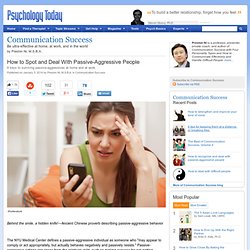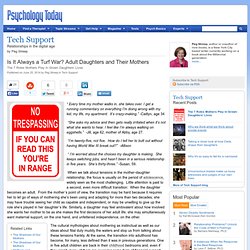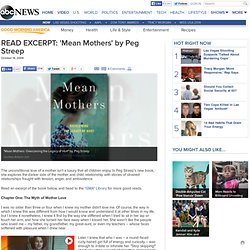

How to Spot and Deal With Passive-Aggressive People. Behind the smile, a hidden knife!

―Ancient Chinese proverb describing passive-aggressive behavior The NYU Medical Center defines a passive-aggressive individual as someone who "may appear to comply or act appropriately, but actually behaves negatively and passively resists. " Passive- aggressive actions can range from the relatively mild, such as making excuses for not getting together, to the very serious, such as sabotaging someone’s well-being and success. Most chronically passive-aggressive individuals have four common characteristics: They’re unreasonable to deal with.They’re uncomfortable to experience.They rarely express their hostility directly.They repeat their subterfuge behavior over time. Passive aggressiveness may be directed towards a person or a group. 1. When you experience possible passive-aggressive behavior from someone for the first time, avoid jumping to a negative conclusion. 2. 3.
Is It Always a Turf War? Adult Daughters and Their Mothers. “ Every time my mother walks in, she takes over.

I get a running commentary on everything I’m doing wrong with my kid, my life, my apartment. It’s crazy-making.” -Caitlyn, age 34 “She asks my advice and then gets really irritated when it’s not what she wants to hear. I feel like I’m always walking on eggshells.” “I’m twenty-five, not five. . “ I’m worried about the choices my daughter is making. When we talk about tensions in the mother-daughter relationship, the focus is usually on the period of adolescence, widely seen as the most challenging. The cultural mythologies about mothering as instinctual as well as our ideas about filial duty muddy the waters and stop us from talking about these tensions frankly.
What makes this transition so hard? Research shows the tension between mothers and adult daughters is more of the norm than not, even in essentially loving relationships. Even if there is no competition between the mother and the adult daughter, there is always comparison. READ EXCERPT: 'Mean Mothers' by Peg Streep. The unconditional love of a mother isn't a luxury that all children enjoy.

In Peg Streep's new book, she explores the darker side of the mother and child relationship with stories of strained relationships fraught with tension, anger, and ambivalence. Read an excerpt of the book below, and head to the "GMA" Library for more good reads. Chapter One: The Myth of Mother Love I was no older than three or four when I knew my mother didn't love me. Of course, the way in which I knew this was different from how I would know and understand it at other times in my life, but I knew it nonetheless. Null Later, I knew that who I was – a round-faced curly-haired girl full of energy and curiosity – was enough to irritate or infuriate her. I knew, more than anything, that her power was enormous and that the light of her sun was what I needed. When I was a little girl, I learned to tiptoe through her shadows and found sunshine in the real world and that of my imagination. Motherless by Choice
It's been four years since I last spoke with my mother.

I may never speak to her again. There is no easy way to say, "I'm estranged from my mother. " It's even harder to say, "I've cut my mother out of my life," clarifying that you are the one who has severed the bond. Say it to anyone, friend or stranger, and a certain light you hadn't even noticed fades from their eyes, every time. Smiles falter or grow forced. When I was in high school, I slept most nights on the living room floor.
As we entered our teens, home life got worse for my sister and me. I don't recall my mother ever saying that Sam, or those who had asked him to come, were wrong to worry about our welfare. She must have known that college was already cemented in my mind as my escape route, the best way out for a bright girl who threw herself into her schoolwork because she was literally not allowed outside the house for any other reason. "She's your mother; you'll want to reconnect someday. " READ EXCERPT: 'Mean Mothers' by Peg Streep.